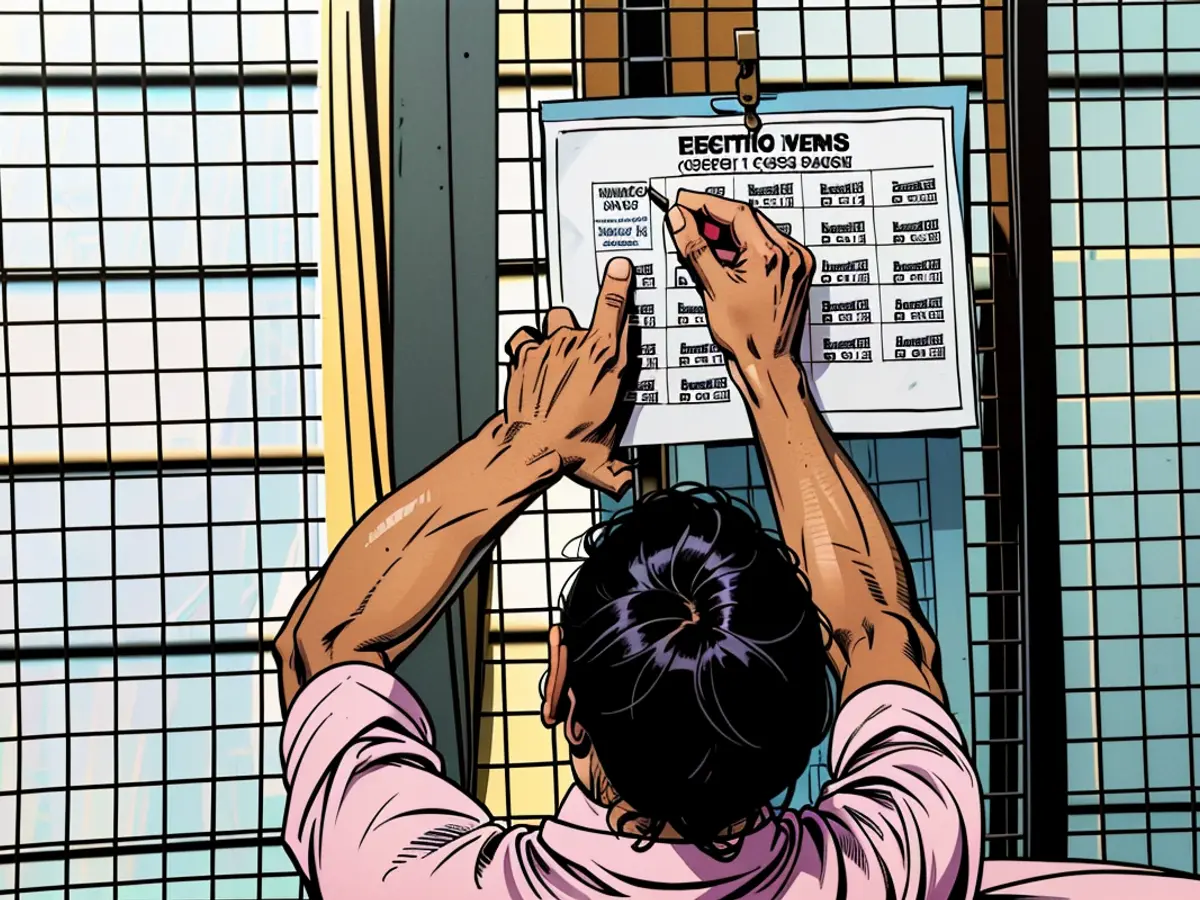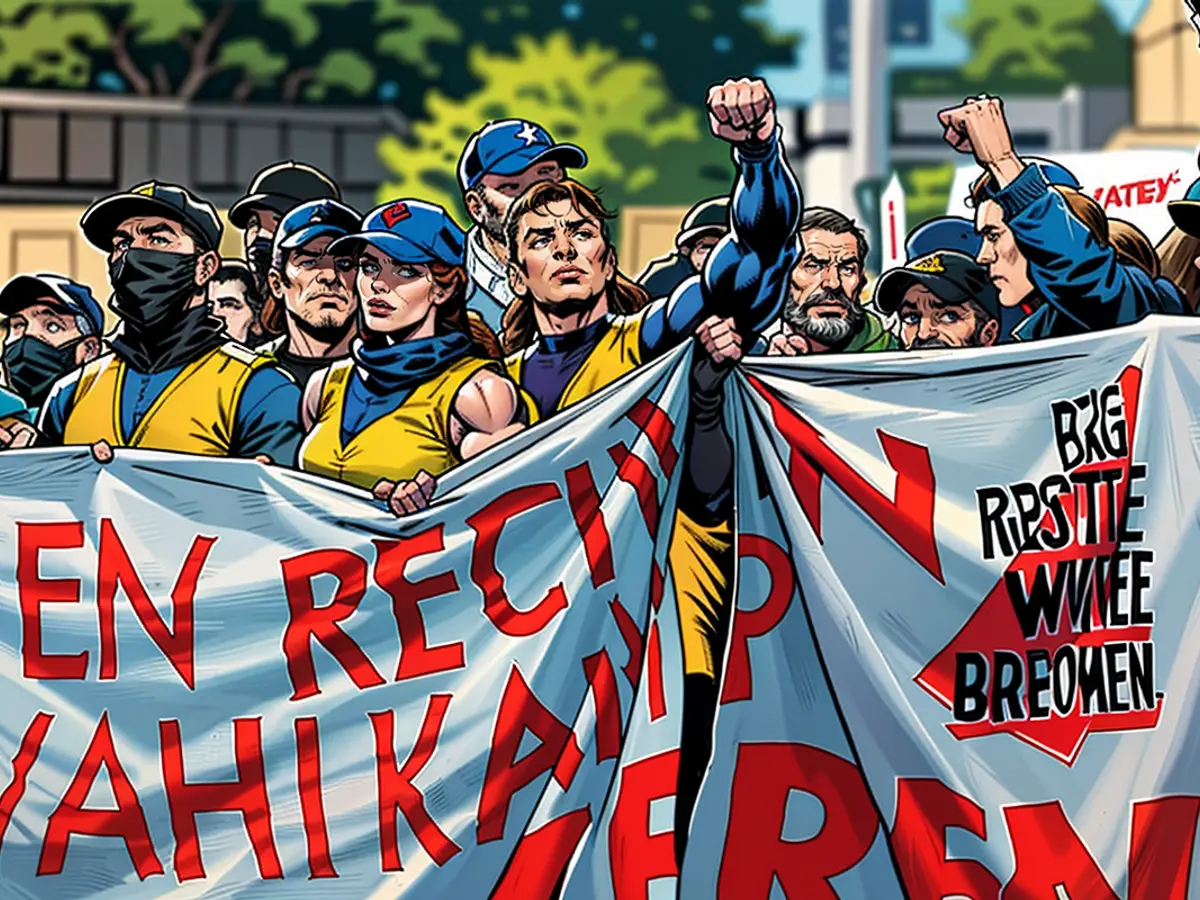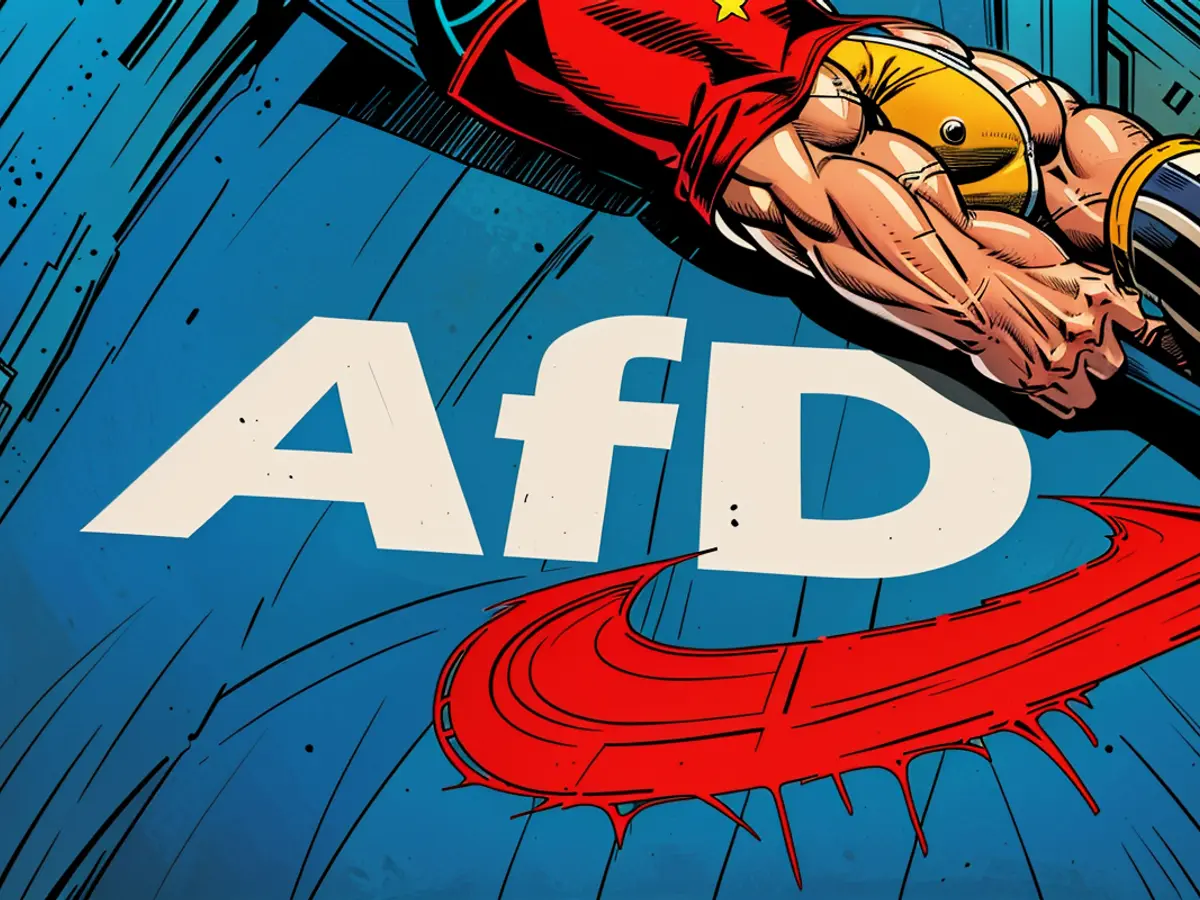Voting in India - Indian Prime Minister Modi experiences setback in legislative poll.
India's Prime Minister Narendra Modi has claimed victory in the parliamentary elections, but his coalition has experienced a significant setback. As almost all the votes have been counted, Modi's party, the BJP, has emerged as the strongest force. However, it has lost its absolute majority in the lower house, as preliminary results from the election commission show.
This means the coalition is now dependent on its coalition partners to form a government. Initially, it was expected that Modi would become the second head of state in his country to serve for three consecutive terms.
In a Twitter post, Modi said, "The people have once again expressed their trust in my ruling coalition." He added that his Hindu-nationalist BJP should be the strongest party, but it would lose its absolute majority in the lower house. Thus, it would need its coalition partners to form a government.
Although the expectation was that Modi could continue ruling for another five-year term, Rahul Gandhi of the opposition Congress Party left open the possibility of talks with two of Modi's coalition partners. The stock market suffered its sharpest losses in four years as a result of Modi's setback.
Modi places high hopes on the election's outcome
Modi had set high goals for the election campaign, with his ruling coalition winning more than 400 of the 543 seats in the lower house and increasing its majority. However, he fell short of this target.
The BJP campaigned heavily around Modi's personality cult. Modi aims to become India's second head of state to rule for three consecutive terms. But instead of expanding his power base, he now finds himself weakened.
The election campaign was heavily influenced by Modi's Hindu-nationalist agenda. He presented himself as India's strongman, promoting a vision of an India for the Hindu majority, which makes up 80% of the population. However, this approach alienated Muslims and other religious minorities, who feel like second-class citizens. Modi even referred to Muslims as "intruders."
Modi came to power a decade ago, with a promise to transform the Indian economy. Since then, India has changed significantly, with new infrastructure, roads, airports, and rail connections being built everywhere. The economy has nearly doubled in size, making India the world's fifth-largest economic power, and attracting investors. The stock markets are booming worldwide due to India's economic growth, digitalization is advancing, and mobile networks are cheap. Last year, India successfully carried out a moon landing, making it the fourth country to do so.
However, there are cracks in this facade. High unemployment and inflation levels persist, with around 800 million of India's 1.4 billion people relying on social assistance. Growth is extremely unevenly distributed, and the opposition has capitalized on these conditions.
The opposition's performance exceeded expectations
"I am extremely proud of the people of India," said Rahul Gandhi, leader of the opposition Congress Party. The population has rejected Modi as the head of the government, Gandhi asserted.
The opposition warned repeatedly during the campaign about the erosion of democracy under Modi. "If Modi's second term in office is taken as a benchmark, a third term will not be good for the long-term health of Indian democracy," said political scientist and South Asia expert Sumit Ganguly of Indiana University.
The opposition accused Modi of using state institutions to silence them. Several opposition politicians were in custody during the election campaign due to corruption allegations.
Modi also claimed all positive developments in his country as his own achievement and used India's growing importance on the global stage to his advantage. Germany, the United States, and other Western countries are seeking closer ties to the subcontinent in the face of a more aggressive China. Critics say they overlook the fact that India remains neutral in the Ukraine war, buys a lot of cheap Russian oil, and maintains good relations with Moscow.







